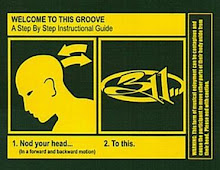In 1936 Franklin Delano Roosevelt said that "private enterprise, indeed, became too private. It became privileged enterprise, not free enterprise." His response to the market collapse that kick started the Great Depression seems to parallel the current conundrum of the U.S. economy.
John McCain was quick on Monday to issue a statement calling for “major reform” to “replace the outdated and ineffective patchwork quilt of regulatory oversight in Washington and bring transparency and accountability to Wall Street.” This contradicts the position that McCain has had as recently as this past March, when he said "Our financial market approach should include encouraging increased capital in financial institutions by removing regulatory, accounting and tax impediments to raising capital."
Obama set out his general approach to financial regulation that same month, calling for regulating investment banks, mortgage brokers and hedge funds much as commercial banks are. He also supported streamlining the overlapping regulatory agencies and creating a commission to monitor threats to the financial system that would report to the White House and Congress.
McCain supporters cling to the belief that his extensive tenure in the Senate and his reputation as a reformer will see the country through this rough economic time. One of McCain's top economic advisers, Phil Gramm, was co-sponsor of the Gramm-Leach-Bailey Act of 1999, which repealed legislation that had separated commercial and investment banks since the 1930s. McCain has pointed the blame squarely at the greed of Wall Street, but this is a greed that he has helped foster. The examples of his reputation as a "de-regulator" are too numerous for me list here, but you can find them all over the internet.
It seems as if no one saw this coming. But wait, in February of 2006 Obama introduced legislation to combat deteriorating mortgage lending practices called the Stopping Transactions which Operate to Promote Fraud, Risk, and Underdevelopment Act” or the “STOP FRAUD Act,” S.2280. The premise was simple. If enacted, the STOP FRAUD Act would have amended the U.S. Code so that it would essentially become a Federal crime for any “mortgage professional” to knowingly execute or attempt to execute a scheme that would defraud anyone, including financial institutions, in connection with an offer or extension of consumer credit secured by an interest in real property; or obtain, by means of false or fraudulent pretenses, representations or promises, or money or property, including fees or charges, in connection with the extension of such credit. In March of 2007, Obama was the only one on the campaign trail talking about the impending housing crisis. He followed that up with his aforementioned six-point plan for economic reform in March of 2008.
As a matter of political and rational survival, McCain has had to change his tune. He quickly put out a commercial pledging that he will reform Wall Street and fix Washington. But his ad is a little light on substance. Obama, on the other hand, put together a two-minute spot detailing how he will do what McCain says he will do.
There are many obstacles here and neither candidate has extensive economic background or experience. I won't pretend to know if Obama's plans will succeed or if McCain actually has the diligence and wherewithal to change his decades-long stance. But I don't have to pretend that Obama has been trying to curb these problems since his election to the Senate and McCain has been there over twenty years contributing to these problems.
Everybody has had the opportunity to hear Obama speak. A lot of pundits and naysayers will tell you he's full of elegance and hyperbole, nothing more. I hope that somebody, besides me, has been listening.
A New White House Curator: Missed the Peg
8 years ago

1 comment:
Hello everyone!
I would like to burn a theme at this forum. There is such a nicey, called HYIP, or High Yield Investment Program. It reminds of financial piramyde, but in rare cases one may happen to meet a company that really pays up to 2% daily not on invested money, but from real profits.
For several years , I earn money with the help of these programs.
I don't have problems with money now, but there are heights that must be conquered . I get now up to 2G a day , and I started with funny 500 bucks.
Right now, I managed to catch a guaranteed variant to make a sharp rise . Visit my web site to get additional info.
http://theinvestblog.com [url=http://theinvestblog.com]Online Investment Blog[/url]
Post a Comment